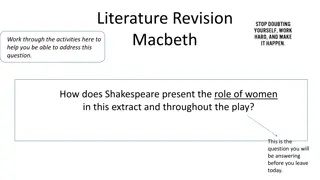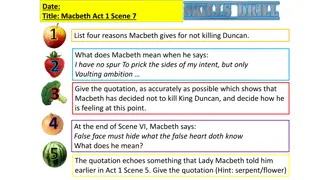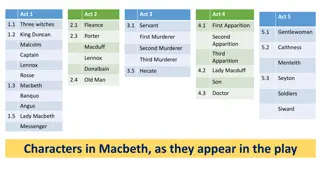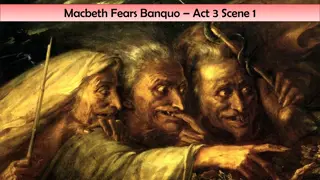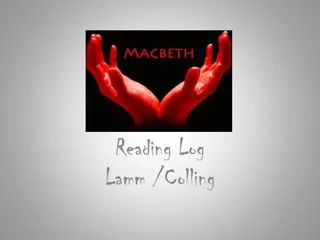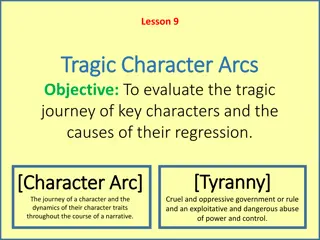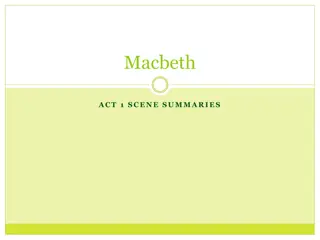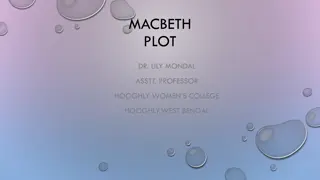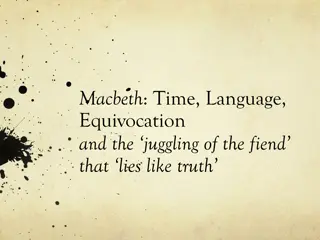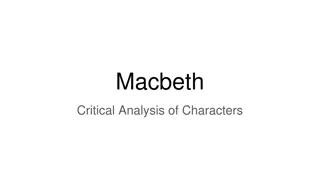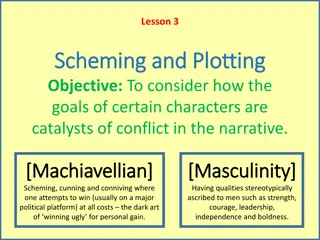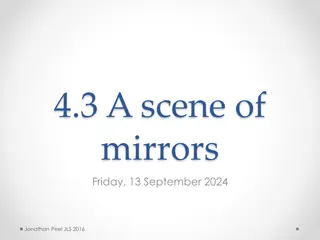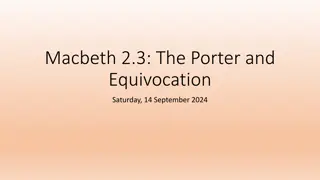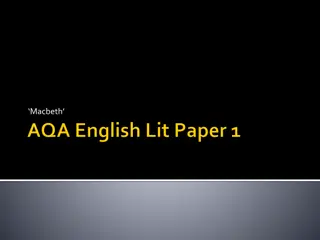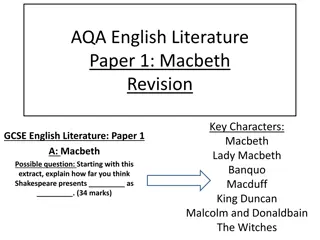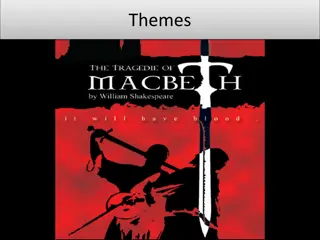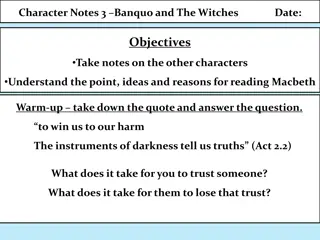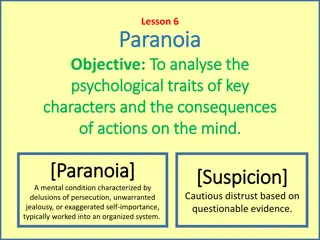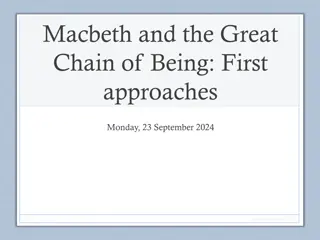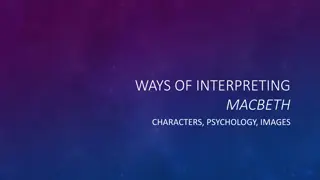Themes and Characters in Macbeth: An In-depth Analysis
Exploring the themes of evil, conscience, imagery, and literary devices in Shakespeare's Macbeth, this evaluation delves into the role of the three witches, Macbeth's internal battle between good and evil, and the decline of his conscience. Through discussions on morality, symbolism, and character development, the analysis showcases the profound exploration of human nature in the play.
Download Presentation

Please find below an Image/Link to download the presentation.
The content on the website is provided AS IS for your information and personal use only. It may not be sold, licensed, or shared on other websites without obtaining consent from the author.If you encounter any issues during the download, it is possible that the publisher has removed the file from their server.
You are allowed to download the files provided on this website for personal or commercial use, subject to the condition that they are used lawfully. All files are the property of their respective owners.
The content on the website is provided AS IS for your information and personal use only. It may not be sold, licensed, or shared on other websites without obtaining consent from the author.
E N D
Presentation Transcript
Macbeth An Evaluation-II
Theme of Evil in Macbeth Three witches symbol of evil War and Treachery Instruments of evil: Macbeth and Lady Macbeth Internal battle of good and evil Evil omen in nature Macbeth s alienation from God and from man Restoration of peace and harmony after a battle against evil
The Role of the Three witches In Macbeth A symbol of the force of evil Mischievous and weird Deception Devils within a man Cause of eternal damnation Motivation behind the murders Reactions of Macbeth and Banquo towards the witches
Macbeths Conscience and its Decline Moral choice before Macbeth Ambition ignited by the Witches Lady Macbeth s views about Macbeth s sound conscience His on views about himself Hallucinations sleeplessness Sense of guilt after murder Sense of insecurity Fear and Banquo s ghost Complete degeneration of his conscience Lost confidence and apparition scene Remorse but no choice left
Imageries in Macbeth The garment imagery Imagery of fog Images of echoing sound Images of light and dark Images of blood, dagger Images of sickness and disease Images of devil and monster
Asides and Soliloquies in Macbeth Definition: Both an aside and a soliloquy are speeches made by a character to himself but there is a technical difference between these two. An aside is a speech made by a character privately to himself when other characters are also present in the scene. A soliloquy is a speech which a character makes to himself when he is all alone. ..continued
Significance of these literary devices in the play Character revelation Plot development Contain profound and philosophical thoughts of the character Induce psychological interest in the drama
Macbeth as a Morality Play Morality play is a kind of allegorical drama having personified abstract qualities as the main characters and presenting a lesson about good conduct and character popular in the 15th and 16th century. Macbeth reflects the attributes of a morality play with followings: Evil deeds and retribution Characters as symbol of good and evil A tragedy of damnation and a study of evil Psychological truths of human nature Victory of good upon evil
Dramatic Irony in Macbeth Dramatic Irony is a literary technique originally used in Greek tragedy by which the full significance of a character s words or actions is clear to the audience or reader although unknown to the reader. William Shakespeare has used many ironies in Macbeth. As follows: Irony in King Duncan s remark Irony in Lady Macbeth s reception of Duncan Ironical Speeches of Macbeth Macduff and Lenox s ironical statements Dramatic Irony in the prediction of the witches
Supernatural Elements in the play Macbeth Supernatural Elements: Witches and Hecate Ghost of Banquo Evil omens in Nature Divine Powers of King Edward Plausibility of Supernatural element in the play Contemporary belief in witchcraft Shakespeare s conformity to the general beliefs regarding supernatural elements Objective existence of the witches




